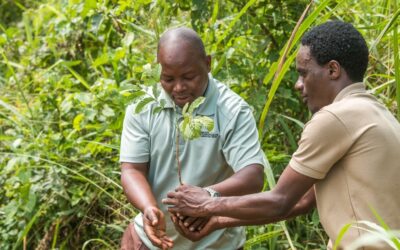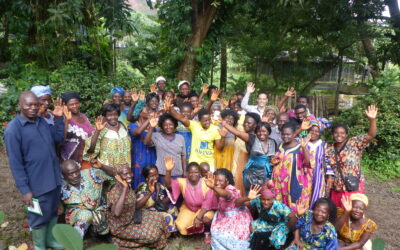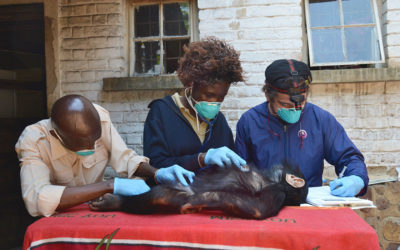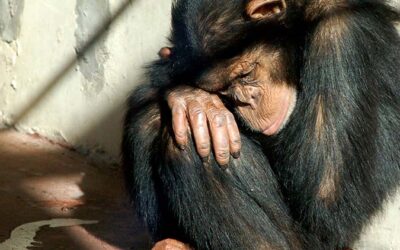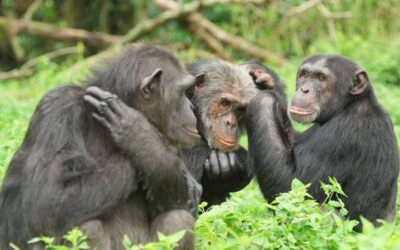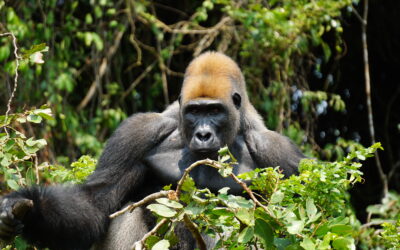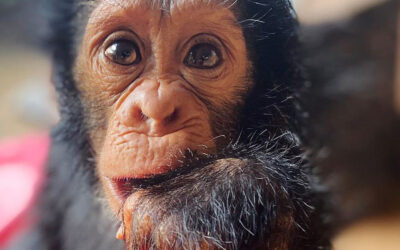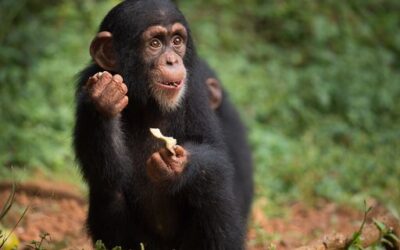to Great Apes and Monkeys
While the term “bushmeat” can simply stand for any wild animal killed for the purpose of eating its meat, most often in media it is used to refer to the illegal hunting of endangered, protected animals in Africa. The meat is either eaten by the hunter or sold to earn much-needed income. Ultimately, it is one of the few resources people in impoverished countries can use to meet basic protein requirements.
However, there are many factors that determine which species have the most pressure put on them and they can vary significantly by region. In countries of West Africa as well as in the Congo basin, bushmeat is now the leading threat to great apes, along with monkeys, elephants, antelope and almost any species that hunters opportunistically find in their forests.
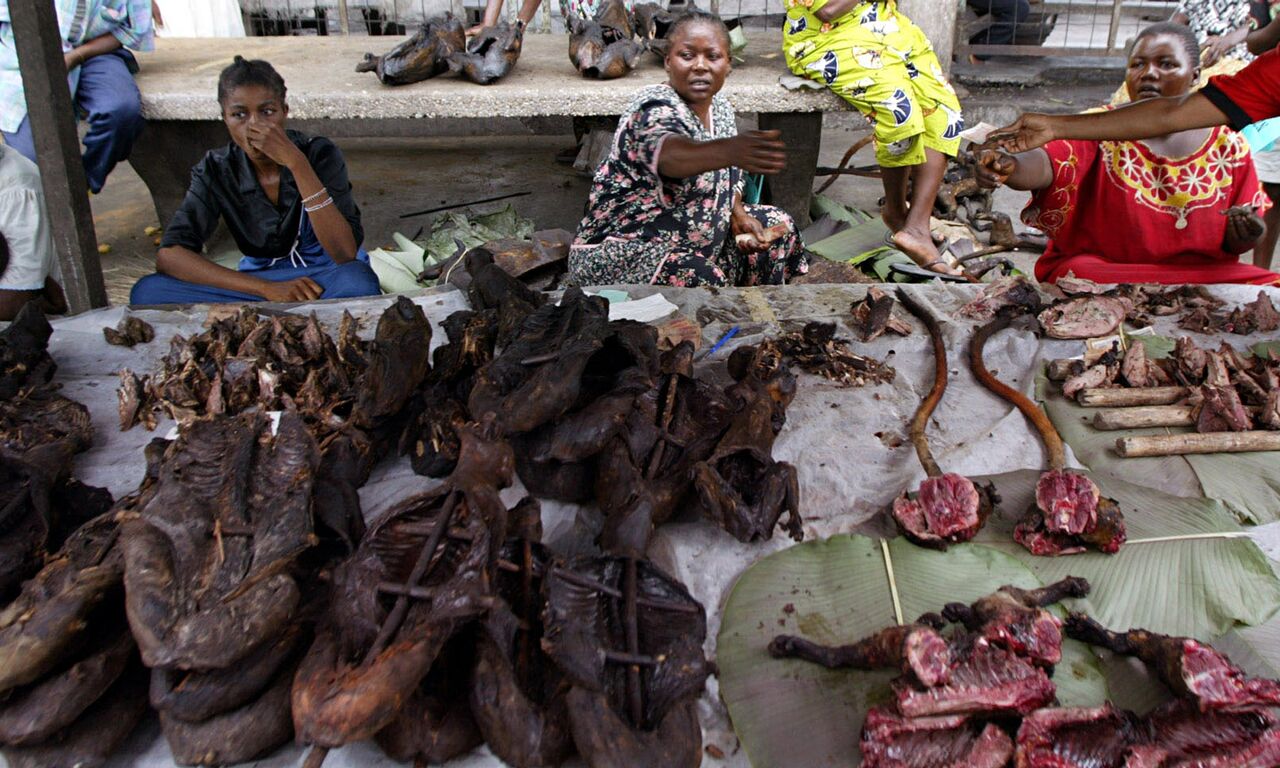
Spanning across six countries in central Africa is the world’s second-largest tropical rainforest, the Congo Basin. From within the Congo basin alone, 6 million tons of bushmeat is taken from the forests each year. There is no easy solution to this, as keeping livestock here is not common. Additionally, trying to replace this amount of meat with livestock such as cattle would bring with it a new type of environmental disaster, including major deforestation and large amounts of waste products.
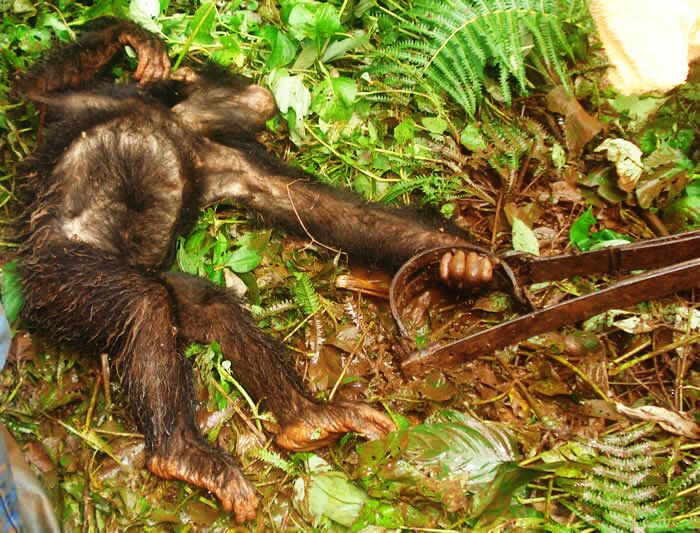
An additional factor in the culture of bushmeat is availability and taste preference. For example, in major cities in DRC and Central African Republic, bushmeat is viewed as a cheap form of protein and readily available. Countries like Gabon, Cameroon and Equatorial Guinea have easier access to fish and chicken, making bushmeat more of a luxury item.
Besides the threat of extinction looming over African wildlife due to the bushmeat crisis, there is also the risk of disease transmission. For example, great apes are as adversely affected by the Ebola virus as humans. Ebola can be transmitted to humans from contact with contaminated meat and eating bushmeat is believed to be a cause of Ebola outbreaks in humans. With 180,000 pounds of bushmeat being smuggled into the United States annually, this problem could quickly affect any of us.
PASA is working hard to get the message out about the threat of bushmeat and there are ways for you to help.Please make your voice heard by signing our petition to U.S. Customs to improve security and prevent the illegal import of bushmeat.
You can also fight the bushmeat trade by donating to PASA. Our 23 member sanctuaries across 13 African countries are committed to educational outreach and working with African communities to create culturally relevant plans to decrease bushmeat hunting and consumption, while providing communities with viable alternative sources of income. Please contribute today, before our closest relatives are extinct.
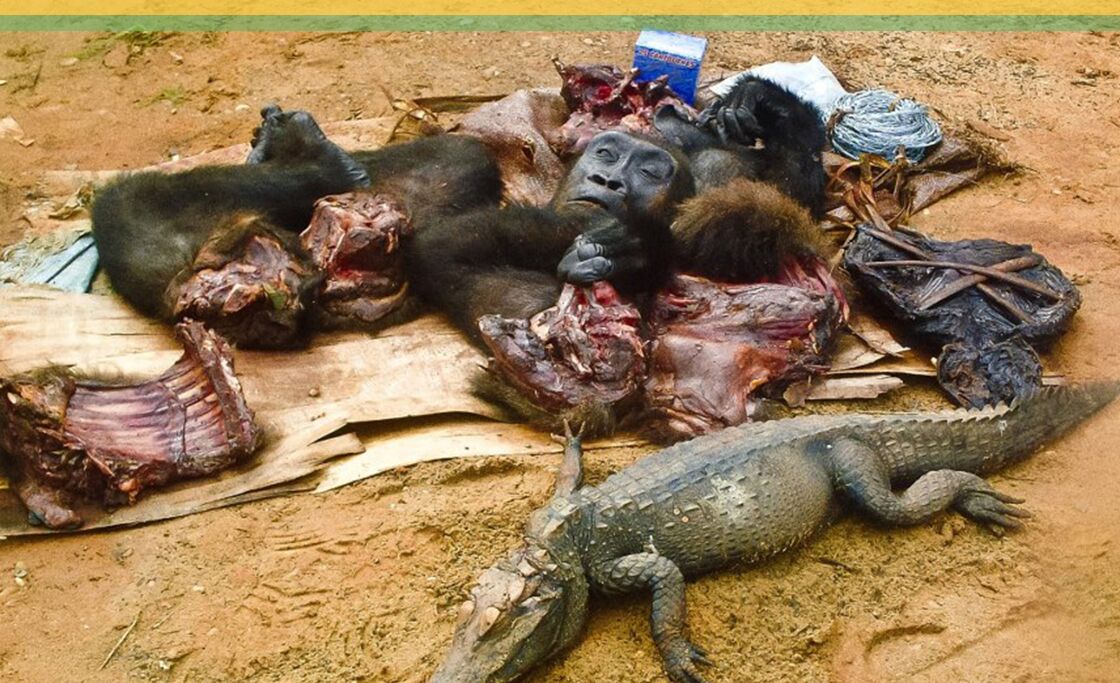
Conservation Efforts Safeguard African Wildlife and Habitat
African primates face interrelated environmental threats. That’s why wildlife conservation is integral to PASA member sanctuaries’ work.
PASA Welcomes Kelly O’Meara as New Executive Director
Kelly O’Meara joins the Alliance as PASA’s new Executive Director. Her leadership will be instrumental in the fight to protect primates.
Sanctuaries Build a Greener Future
PASA members are on the front lines of restoring habitat and building a greener future for their communities.
Women in Conservation: Protecting Africa’s Primates, Serving as Role Models
Meet two extraordinary African women in conservation who are protecting great apes and monkeys through their work at PASA member sanctuaries.
Coming Together to Stop Social Media Animal Cruelty
Social media channels may make it seem like primates work make good pets. But don’t believe it. Discover how we’re working in a coalition to take animal cruelty offline for good.
Celebrating the Amazing – and Endangered – Chimpanzee
In honor of World Chimpanzee Day, we’ve gathered facts and figures about these amazing animals. And we’re sharing some rescue stories that make our hearts sing.
Cryptocurrency and Conservation: A New Approach
For the last few months, we’ve been in conversations with a cryptocurrency called FEG Token. They are now an official PASA sponsor and have made a $1.1 million dollar pledge to us, in the cryptocurrency.
An Inside Look at Primate Rescues
What’s involved in rescuing a primate? More than you’d think! Read on to discover all that goes into this complex but rewarding work.
Ensuring Great Care After the Rescue
The Primate Care Training program helps sanctuary teams stay sharp so that they can provide great care to rescued apes and monkeys. Here’s how it works.
Building a Chimpanzee Nursery
Tacugama Chimpanzee Sanctuary has 23 baby chimps – many rescued from the illegal wildlife trade. Now they need a bigger nursery.

